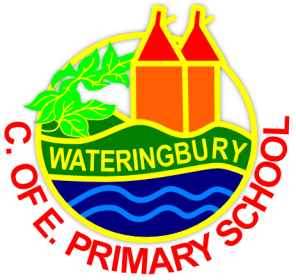Mathematics



AIMS
The national curriculum for mathematics aims to ensure that all pupils:
- become fluent in the fundamentals of mathematics, including through varied and frequent practice with increasingly complex problems over time, so that pupils develop conceptual understanding and the ability to recall and apply knowledge rapidly and accurately.
- reason mathematically by following a line of enquiry, conjecturing relationships and generalisations, and developing an argument, justification or proof using mathematical language
- can solve problems by applying their mathematics to a variety of routine and nonroutine problems with increasing sophistication, including breaking down problems into a series of simpler steps and persevering in seeking solutions
INTENT
Concrete

Pictorial

Abstract

Maths is a skill we use on a daily basis and is an essential part of everyday life. Mathematics forms an important part of our broad and balanced curriculum where we endeavour to ensure that children develop an enjoyment and enthusiasm for maths that will stay with them throughout their lives and empower them in future life.
Our aim is to develop a positive culture of deep understanding, confidence and competence in maths that produces strong, secure learning. As a school, we recognise that the key to unlocking the potential in our children is through the development of basic mathematical skills and the understanding of mathematical concepts.
We therefore place great emphasis on the use of concrete resources and pictorial representations at all ages, to enable children to fully understand the concepts and principals, when presented with abstract calculations and questions. Counting and number sense is at the heart of our maths curriculum ensuring that all children develop a deeper understanding. Each lesson starts with counting and the recall of number skills.
IMPLEMENTATION
Our maths curriculum provides breadth and balance, is relevant and engaging and is adaptive to match the needs and abilities of all our children to ensure that all pupils are able to excel. As a school, we believe in the importance of following the concrete-pictorial-approach as a means to developing a solid understanding of mathematical concepts which can be applied in a variety of contexts through reasoning and problem-solving challenges.
- Children receive a minimum of 5 maths lessons each week with additional sessions devoted to number proficiency and times tables.
- From Reception to Year 6, children follow the scheme of ‘White Rose’ which supports children in learning the fundamentals behind the meanings of numbers and exploring other key mathematical areas.’ White Rose uses ‘small steps’ to break down the teaching sequence into small achievable steps. Where children require additional support, ‘scaffolds’ are used to support children further to ensure that they have secured the small step before moving on. These ‘scaffolds’ may be in the form of returning to concrete resources or pictorial representations. For children who understand a concept quicker, challenges are used to deepen and challenge learners further within the curriculum area.
- Developing number sense is also an important aspect of our mathematical curriculum. Counting is valued in all classes and is used at the beginning of all mathematical lessons.
- Our maths curriculum is also supported through the implementation of resources from Third Space Learning.
- Progression documents such as our calculation policy are carefully used to ensure that children are not being stretched outside their year group but rather deepened within it.
- Daily assessment is incorporated throughout the lesson through live and verbal feedback. Pre-topic and post-topic assessments are used in KS2 to monitor the progress made by the children and, where needed, short-term targeted interventions are put into place.
- Formal assessments at the end of terms 2, 4 and 6 are used as a diagnostic tool to ensure that teachers are adapting learning to meet the needs of all children and ensure that any necessary interventions are targeted specifically to meet the needs of children.
Fluency in key facts
Maths facts fluency refers to the ability to recall the basic facts in all four operations accurately, quickly and effortlessly. When students achieve automaticity with these facts, they have attained a level of mastery that enables them to retrieve them from long-term memory without conscious effort or attention.
Learning key facts in all areas of mathematics is essential to developing children’s knowledge and confidence. They form the building blocks for higher-level maths concepts. Times tables play an important part in our maths learning, with children developing their fluency in rapid recall of tables up to 12 x 12 by the end of year 4. While the rapid recall of times tables are being developed, children are also learning how to apply and manipulate their understanding of this to reason and solve problems.
IMPACT
By the end of Year 6, children will have developed a bank of efficient and accurate skills that can be used to calculate effectively. These will have been underpinned by the concrete, pictorial and abstract process, so children understand rather than just do, which ultimately will allow children to identify when answers do not make mathematical sense. Children will be able to apply these calculation skills and understanding of other areas to become confident and resilient problem-solvers with the ability to reason and articulate their ideas mathematically.
